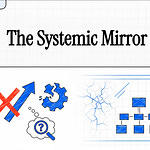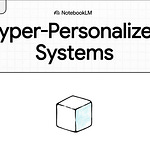Introduction
There's a growing buzz in the business world: AI agents. These digital operatives are being hyped as the ultimate solution to complex workflows, decision-making, and customer interactions. Some pitch them like the James Bond of the enterprise—sophisticated, autonomous, and unfailing. But let’s get real: Is your AI agent really a suave 007… or is it just a rookie intern with access to your mission-critical systems?
Spoiler: It’s often the latter.
In this blog, we’re unpacking the myth of the invincible AI agent. We’ll explore what AI agents are, where they shine, why they stumble, and what your business really needs to know before handing them the keys to the kingdom.
For a more technical deep dive go here - Open AI’s Guide to Building AI Agents
What Is an AI Agent, Anyway?
An AI agent is designed to perform tasks autonomously—understanding goals, making decisions, and taking action with minimal human intervention. Think of it as a digital worker that doesn’t clock out, complain, or take breaks. In theory, it learns from its environment, adapts to new situations, and continues to optimize performance over time.
You’ll find AI agents being used in:
Customer support (chatbots)
Process automation (RPA + LLM hybrids)
Scheduling and task management
Personalized sales and marketing outreach
But here’s the kicker: These agents don’t really “know” what they’re doing. They follow probabilistic patterns, not logic. And without the right structure, they can make confidently wrong decisions—fast.
The 007 Illusion
Why the Bond comparison? Because marketers love to position AI agents as:
Autonomous: Can act independently
Highly skilled: Capable of mastering any task
Reliable: Never makes mistakes
Always learning: Gets better over time
But the reality is a bit messier:
Autonomy without oversight is risk.
Mastery is task-specific. Most agents are only as good as their narrow domain.
Reliability? Not without guardrails and human backups.
Learning is not automatic. Without feedback loops and supervision, AI just keeps repeating its flaws.
007 has a license to kill. Your AI agent doesn’t—but it might still blow up your operations if you let it run loose.
Where AI Agents Actually Work
AI agents can create real value. When well-architected, tightly scoped, and rigorously tested, they can:
Handle repetitive customer queries with speed and consistency
Orchestrate back-office processes faster than humans
Help triage and prioritize large volumes of information
Serve as copilots to augment—not replace—human workers
In short: AI agents can be brilliant assistants. But they aren’t secret agents. Not yet.
Where They Fail—and Why
1. Overpromising and Underbuilding
Vendors often pitch AI agents as plug-and-play. But real-world environments are messy. Integrations fail, edge cases pile up, and assumptions don’t hold.
2. Lack of Business Context
AI doesn’t understand nuance. It doesn’t grasp your company's tone, values, or unwritten rules. Without context, an AI agent can escalate problems instead of solving them.
3. Poor Guardrails
Without constraints, AI agents can make decisions they shouldn’t. Like offering refunds they aren’t authorized to, or misinterpreting a complaint as a compliment.
4. No HITL Fallback
Autonomy without human-in-the-loop (HITL) is dangerous. If there’s no seamless escalation to a human when things go sideways, you’re heading toward chaos.
5. Blind Spots in Monitoring
Many businesses lack observability—so they don’t see the damage until it’s too late. And by then, the “agent” has already left a trail of confidently wrong actions.
The Real Role of an AI Agent (Today)
Think of AI agents not as 007s but as highly capable interns:
They’re eager.
They’re fast.
They follow instructions (most of the time).
But they need supervision, structure, and mentoring.
The businesses that are getting real value from AI agents are those that:
Pair them with human oversight
Build clear workflows with guardrails
Continuously test and improve behavior
Stay realistic about what AI can and can’t do
Final Thoughts: What Your Business Should Do Instead
If you're considering AI agents, start with this mindset: AI is powerful—but only when designed thoughtfully, deployed responsibly, and monitored continuously.
Ask yourself:
Do we have clear, narrowly defined tasks for the agent?
Can we measure its impact?
Have we built guardrails and fallback mechanisms?
Do we have the right mix of AI + human expertise?
The promise of AI agents is real—but they’re not infallible, and they’re definitely not 007.
So go ahead and build your AI team. Just don’t hand over the mission to an agent without a plan. Because unlike Bond, your business doesn’t get a dramatic sequel to clean up the mess.











